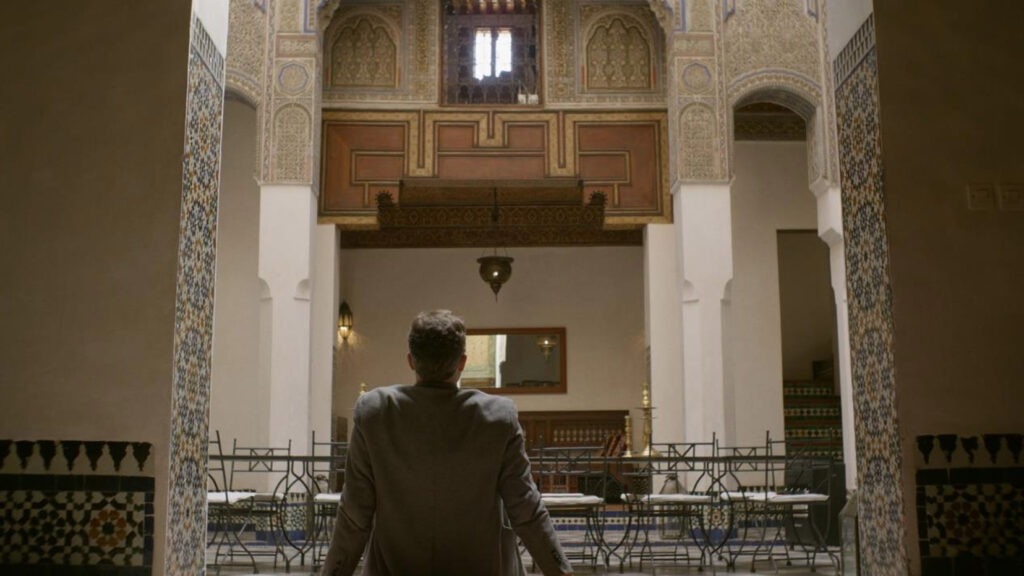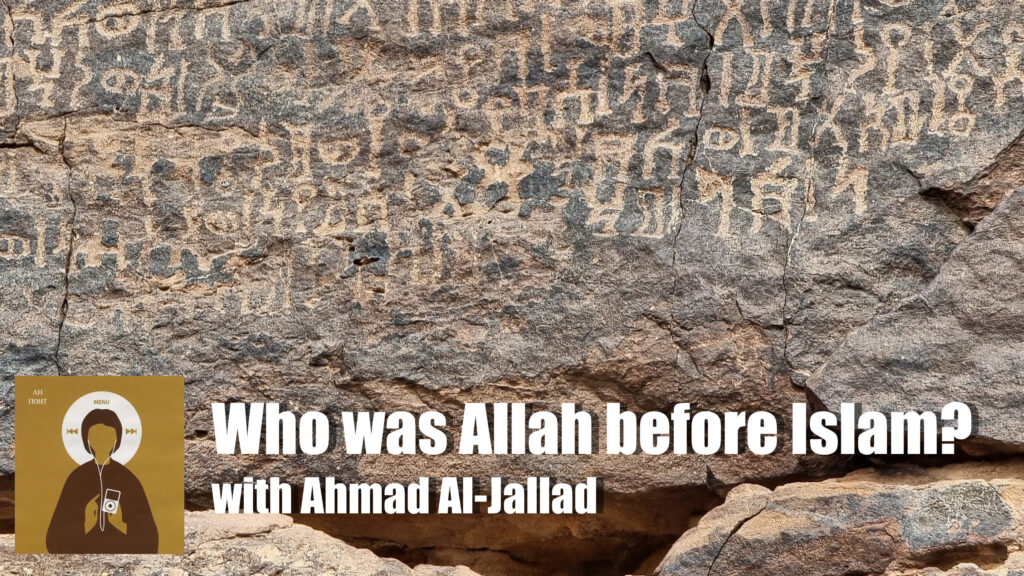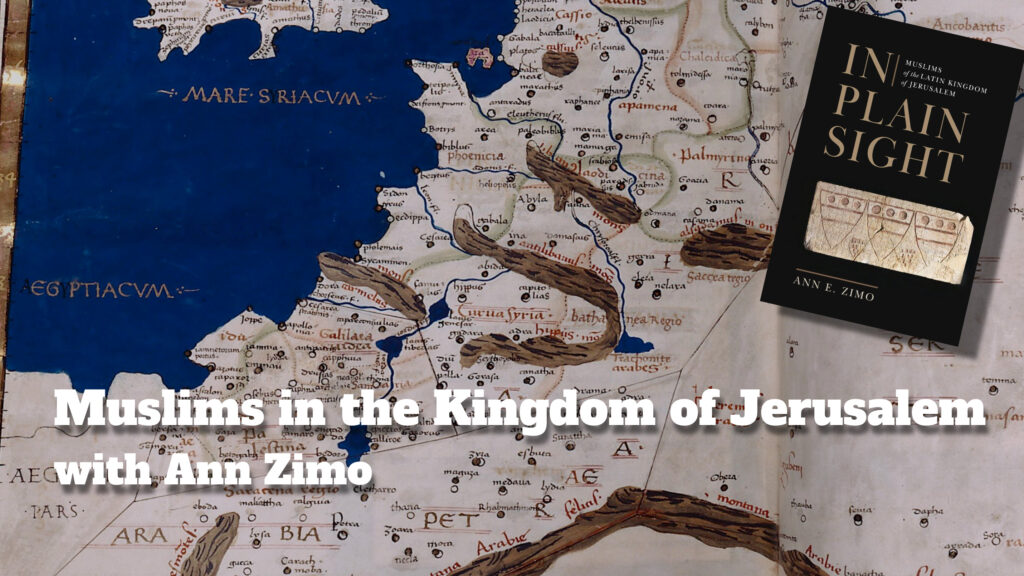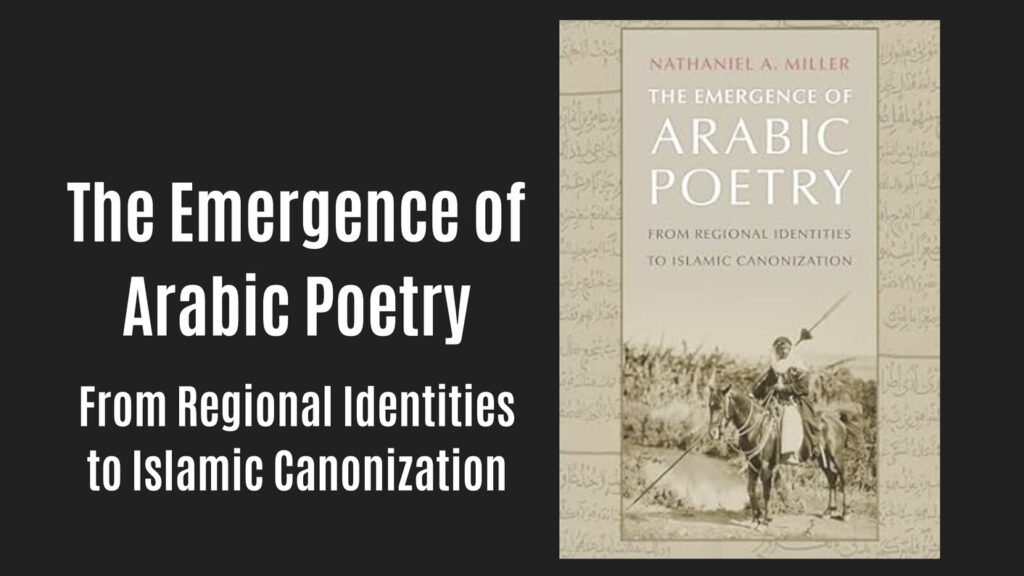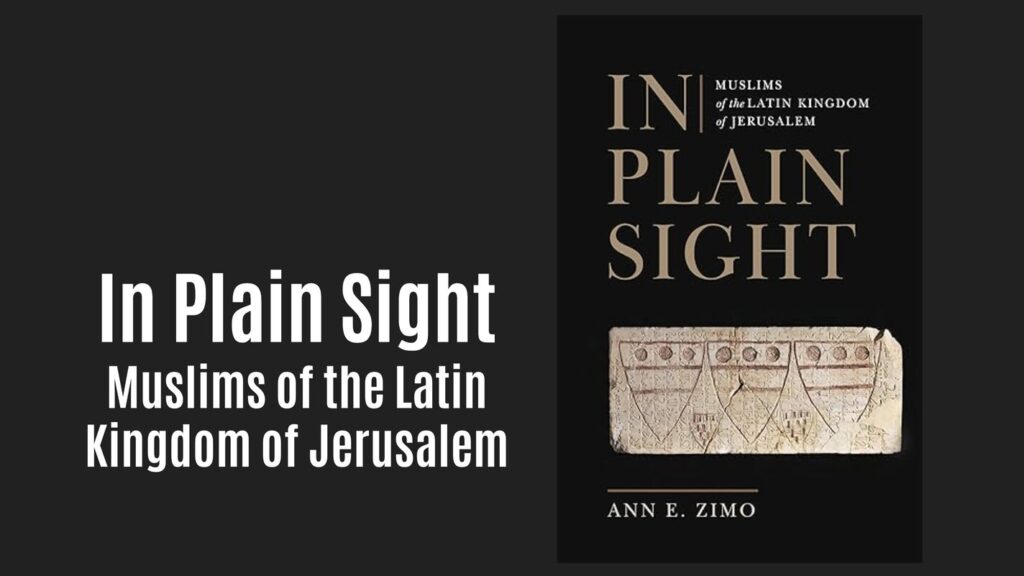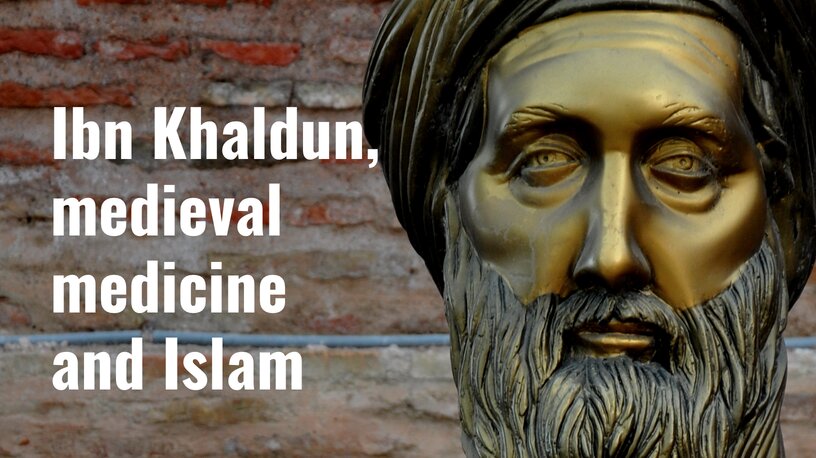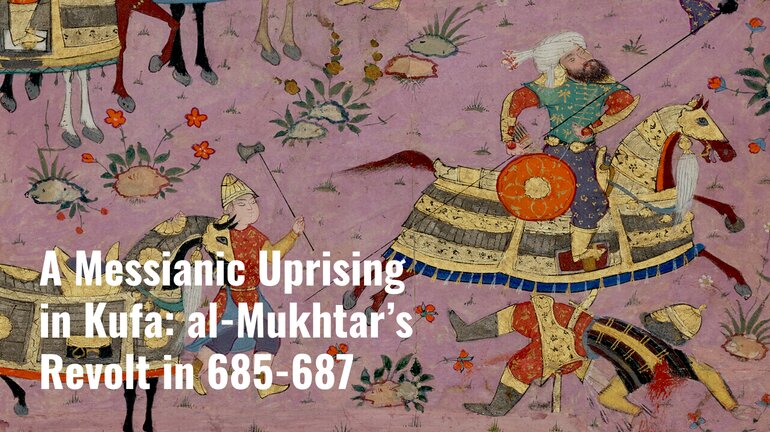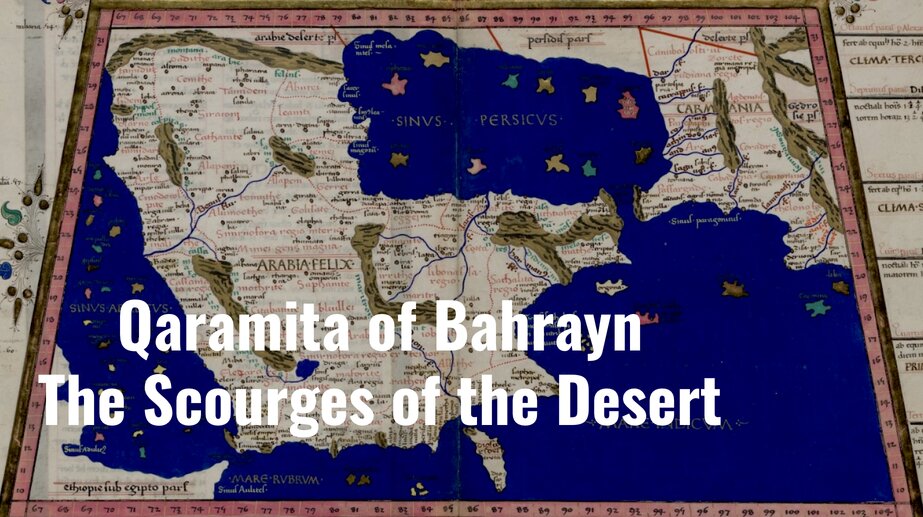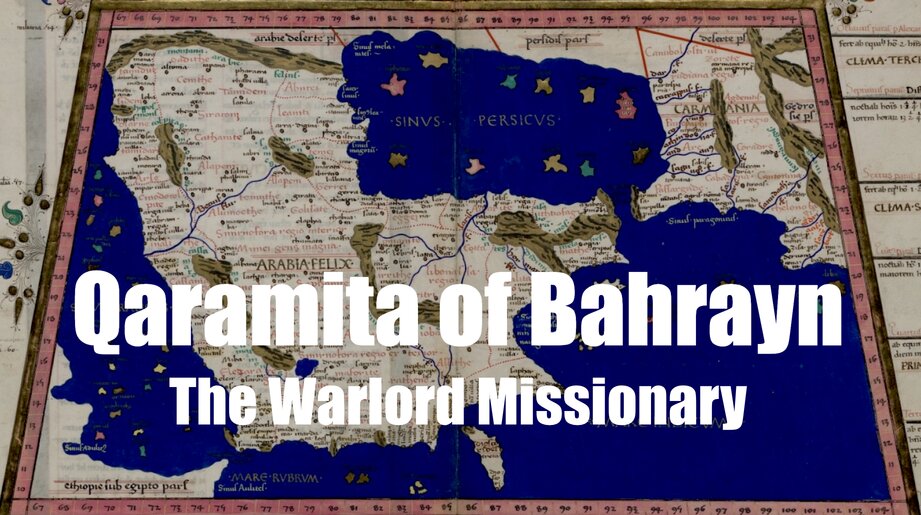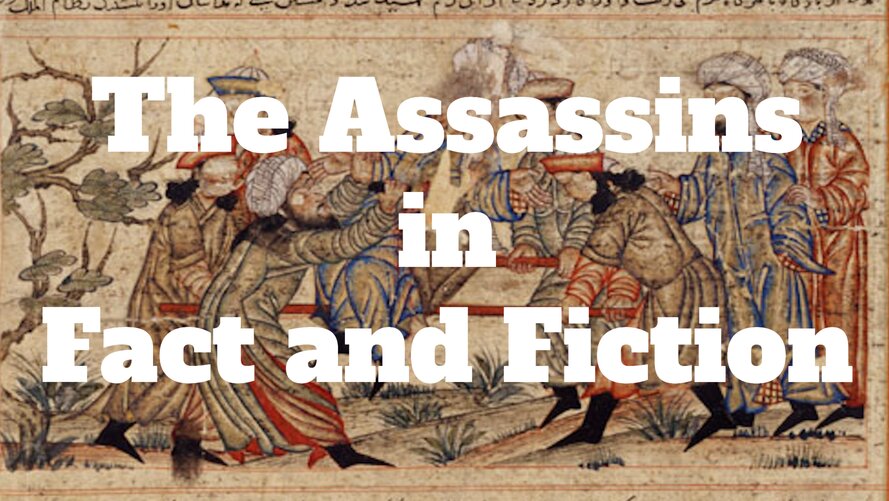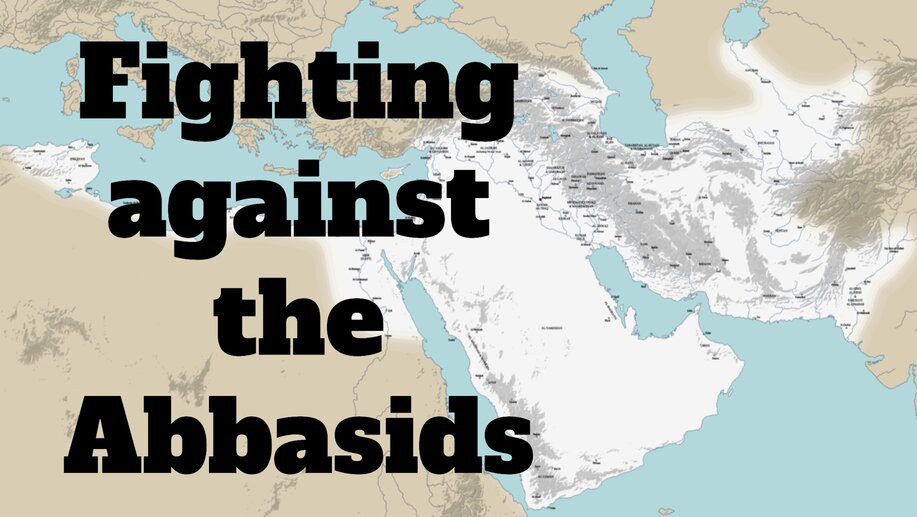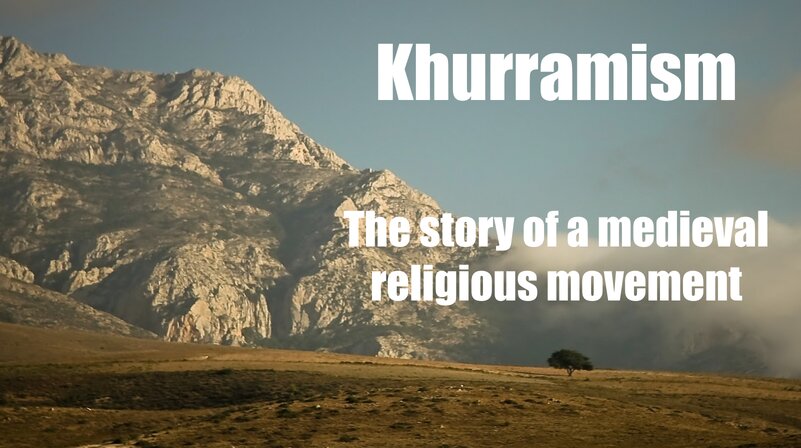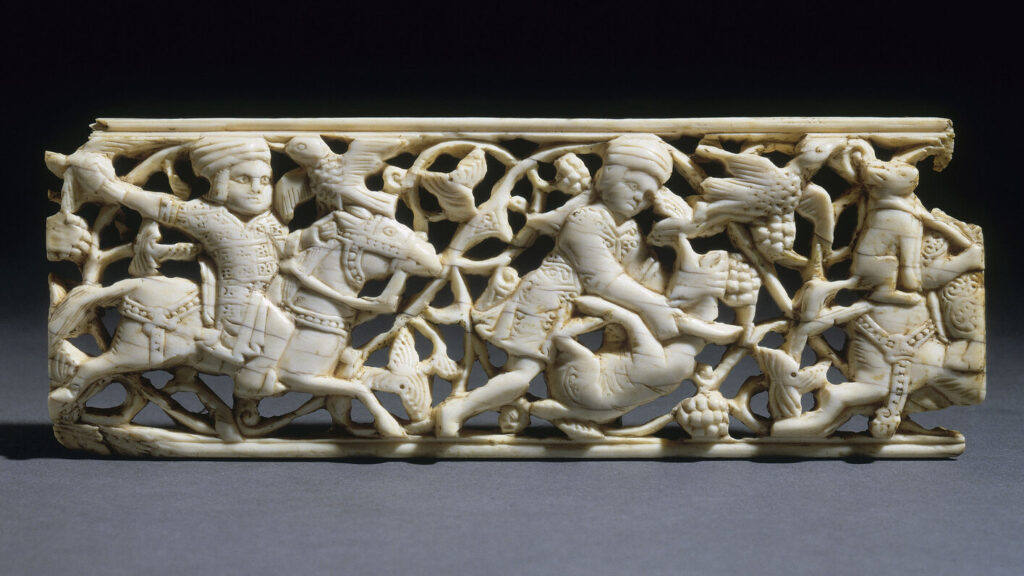Five Senses: Christian Lange on the diversity of Islam
Christian Lange examines the role of the five senses in Islam – through studying smell, sight, hearing, taste and touch he reveals the richness of a world religion.
Who was Allah before Islam?, with Ahmad Al-Jallad
A conversation with Ahmad Al-Jallad about the languages and inscriptions of pre-Islamic Arabia, our main contemporary source for life, death, and worship before the time of the Prophet Muhammad. We talk about field surveys in search of inscriptions and what they tell us about Allah and other Arabian deities in the early centuries of the first millennium.
Muslims in the Kingdom of Jerusalem with Ann Zimo
This week on The Medieval Podcast, Danièle speaks with Ann Zimo about the interactions between Muslims and Christians within the legal, political, and even spy networks of the Latin Kingdom of Jerusalem.
New Medieval Books: The Emergence of Arabic Poetry
Offering a fresh look at the origins and development of Arabic poetry, this book argues that pre-Islamic poetry reflected regional identities and that later Islamic scholars favoured a specific style to define a unified Arab culture.
New Medieval Books: In Plain Sight
After the First Crusade, many Muslim communities in the Eastern Mediterranean found themselves under the rule of the Crusader States. This book delves into the lives of these Muslims, exploring how they adapted and endured under their new rulers.
Medieval Religious Order Might Be the Next European State
A new state might be coming to Europe, and it has a medieval connection. The Albanian government is planning to allow a religious order dating back to the 13th century to have its own microstate.
The Rise and Expansion of Islam in Somalia
Mohamed Haji Mukhtar of Savannah State University takes visitors on a journey into a lesser-known chapter in the spread of Islam — its diffusion through the nomadic Somali-speaking clans of the Horn of Africa.
New Medieval Books: Caliphate and Imamate
Translations of seven texts written between the eleventh and thirteenth century by Islamic writers that deal with politics and theology. They examine questions about who has political authority and why, whether they be Caliphs or Imams.
New Medieval Books: Shi’ite Rulers, Sunni Rivals, and Christians in Between
This book examines how inter-religious relations worked in the Fatimid Caliphate during the late tenth and early eleventh centuries. It would be a period that saw great swings back and forth when it came to religious tolerance.
Who is ‘Islamic History’ about?, with Christian Sahner
A conversation with Christian Sahner about the notion of Islamic history as a field of study. What does it prioritize, who does it tend to see most, and what about everyone else? No field-name is perfect; they all have advantages and disadvantages, and we need to be clear-eyed about them.
Pre-Islamic Arabia, with Valentina Grasso
A conversation with Valentina Grasso on Arabia before Islam. This used to be known primarily from preserved Arabic poetry, but the picture is now filling in from inscriptions and contemporary texts. There were competing kingdoms, tribal coalitions, and foreign empires with a stake in trade routes. There were pagans, Jews, and Christians, as well as generic or “cautious” monotheists. The cultural background of the Quran has never been known in such richness and complexity.
Was a woman the first editor of the Qur’an?
Did one of the wives of the Prophet Muhammad have a crucial role in editing and codifying the Qur’an? A study about Hafsa bint ‘Umar offers some different perspectives on the early days of Islam.
Ibn Khaldun, medieval medicine and Islam – four articles
Here are four recent articles focusing on Ibn Khaldun, the fourteenth-century century social scientist and historian. Written by Mohammadreza Shahidipak, they focus on his views on medicine and the role of Islam in this science.
A Messianic Uprising in Kufa: al-Mukhtar’s Revolt in 685-687
Al-Mukhtar’s two-year rebellion was an episode of a greater historical event known as the Second Civil War or Second Fitna (680-692).
The Scourges of the Desert: The Triumph and Fall of the Qaramita of Bahrayn
In the second part of this look at the Qaramita, it is revealed how they challenged both the Abbasids and Fatimids before ultimately disappearing in the eleventh century.
The Warlord Missionary: Abu Sa‘id al-Jannabi and the Rise of the Qaramita of Bahrayn
Fierce desert tribesmen, united by a sectarian missionary, emerged in Eastern Arabia in the 9th century. Under the leadership of this warlord missionary, they established a powerful predatory polity in Bahrayn that would terrorize the neighboring regions for 150 years.
The Assassins in Fact and Fiction
Perhaps no other group from the Middle Ages has sparked modern-day imaginations like the Assassins. Viewed as mystical and deadly, they were said to be led in Syria by a charismatic figure known as the Old Man of the Mountain. What can we really know about them?
Believing rulers and the political theology of the Qur’an within its Byzantine context
Zishan Ghaffar speaks about Believing rulers and the political theology of the Qur’an within it’s Byzantine context at the conference Unlocking the Byzantine Qur’an.
Mecca’s population was only about 500 people during the Prophet Mohammed’s time, study finds
New research suggests that the population of Mecca was only a few hundred people when the Prophet Muhammad first began preaching the Islamic religion during the first decades of the seventh century.
Fighting against the Abbasids: Rebellions of the Khurramiyya in the 8th century
There were several other rebellions by Khurramiyya groups in Khurasan, Sogdia, and the Jibal region that are described to some extent in the sources and sometimes even just mentioned in passing.
Khurramism: The story of a medieval religious movement
A look at the beliefs and religious practices of the Khurramiyya, and what happened when they came into contact with Zoroastrianism and Islam.
Abu Muslim: The Architect of the Abbasid Revolution
He lived an extraordinary life; he was a servant/slave, a partisan, a revolutionary, a soldier, and rose to be the most powerful man in the caliphate.
Islamic arts showcased in museum exhibitions throughout France
Collections of medieval and modern artwork from the Islamic world are being showcased in 18 cities across France. Arts de l’Islam. Un passé pour un présent will be running until March 27, 2022.
Ilkhanid Chronicles as Sources for History and Doctrines of Fatimid Ismailism
In this paper, I show that these histories, shorn of the narrative frameworks of Persian historical writing and the vitriol directed at the Ismailis, are important witnesses of Fatimid history and doctrine.
What can we know about the life of the Prophet Muhammad?, with Sean Anthony
A conversation with Sean Anthony about the earliest sources for the life of the Prophet Muhammad, including the Quran, papyri, inscriptions, and Christian sources of the seventh century, and how Muslims were initially perceived by the Romans of the eastern provinces.
